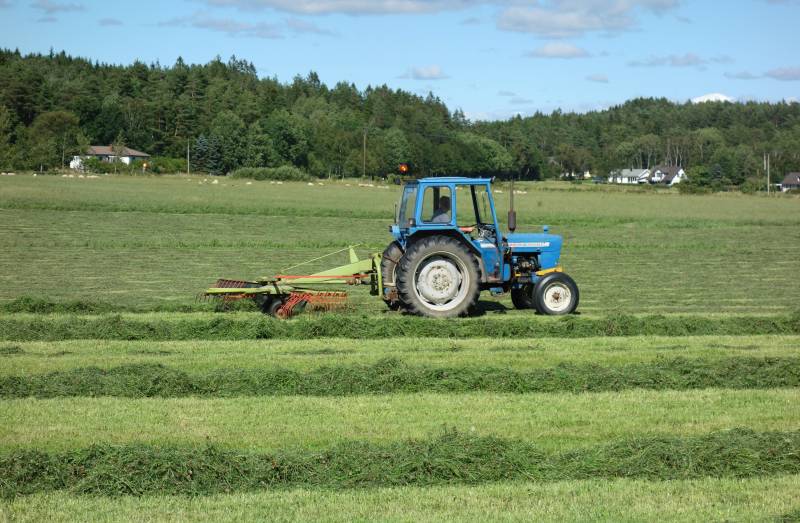
A new generation of grass could boost farm efficiency and tackle climate change, according to scientists.
Grass is a staple diet in most livestock systems. But breeding new varieties of grasses has a vital role to play in terms of animals’ performance and, increasingly, mitigating climate change.
Work by scientists at Aberystwyth University over decades has resulted in great success in producing high-sugar grass varieties which are now widely used on farms throughout the UK, helping farmers to give their livestock all the nutrients they need and reduce the need for bought-in feed.
Now, Hybu Cig Cymru – Meat Promotion Wales (HCC) is partnering with Aberystwyth University’s IBERS grass specialists and Germinal seeds to develop the next generation of ‘lipigrass’.
These are grass varieties with increased lipid (fat) content that encourage efficient livestock production whilst also reducing greenhouse gas emissions.
'Meat quality'
HCC Industry Development Officer Gwawr Parry explained that grass is the cheapest and most efficient feed available to ruminant livestock.
He said: “An animal’s diet also has an impact on meat quality both from a taste and quality perspective. It has been identified that ruminants with a predominantly grass-based diet will have increased levels of Omega-3 in the meat.
“It is believed that a grass variety with a higher fat content could improve animal performance through increased outputs, whether that is increased milk yield or more meat produced per hectare,” added Gwawr.
“Lipigrass also has the potential advantage of reducing methane emissions from animals.”
'Years in the making'
The project ends in 2018, however it is likely to be some years before new types of grasses are commercially available.
“A grass variety can be years in the making before it can be purchased by farmers to sow on their fields,” said Gwawr Parry.
“But this project certainly has long-term potential to develop a whole new range of grasses which will help the efficiency and sustainability of Welsh agriculture for generations to come.”
IBERS research scientist Alan Lovatt said: “Lipids are very energy-rich compounds and have great potential for the improvement of animal performance.
“While this breeding research is very much in the early stages, we strongly believe that IBERS’ pedigree of developing novel traits such as high sugar grasses, especially when linked to new genomic technologies can eventually result in a range of high lipid grasses”
